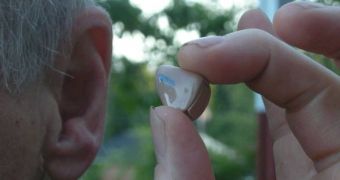According to two independent study teams, one focusing its efforts on mice, and the other on humans, a new type of gene, called a microRNA, is partially responsible for the onset and development of progressive hearing loss. This condition is a hearing deficit that affects millions around the world, especially the elderly. Despite the fact that so many people suffer from it, only a handful of data are known about the condition, which primarily affects the tiny strands of hair that can be found in the inner ear. Their “well-being” is ensured by hundreds of molecules, which are regulated by the microRNA.
“We were able quite quickly to show that if the mice carried one copy of the gene variant, they suffered progressive hearing loss, if they carried two variants, they were profoundly deaf. The important questions were could we determine what the variant is and how does it exert its effect on hearing?” Wellcome Trust Sanger Institute principal investigator of the program Professor Karen Steel said.
“We know of a number of genes involved in deafness in humans and mice but, to our great surprise, this was one of a new class of genes called microRNA. No one has seen a disease-causing mutation in the mature sequence of a microRNA. This is the first microRNA gene associated with hearing impairment and, remarkably, it is the first to be associated with an inherited disorder,” the senior author of the study on humans, Professor Miguel Angel Moreno-Pelayo, from the Madrid-based Centro de Investigacion Biomédica en Red de Enfermedades Raras, added. The expert also works at the Hospital Ramon y Cajal.
In essence, microRNAs are very small pieces of genetic information, whose role and even existence in the human body was completely unknown less than five years ago. Now, experts know that these tiny pieces of ribonucleic acid (RNA) can wreak havoc in humans, if they bind in the wrong place. Despite their small size, microRNAs have the ability to interfere with molecule-production processes, thus allowing for a significant number of conditions to develop.
“Hearing is an exquisitely complex process, involving the intricate interaction of genes and our environment. These exciting studies have opened new avenues to explore to understand better the processes that lead to deafness, with the hope that we will develop new tests and new treatments,” the Chief Executive of the deaf people medical charity Deafness Research UK, Vivienne Michael, stated, as quoted by PhysOrg.

 14 DAY TRIAL //
14 DAY TRIAL //